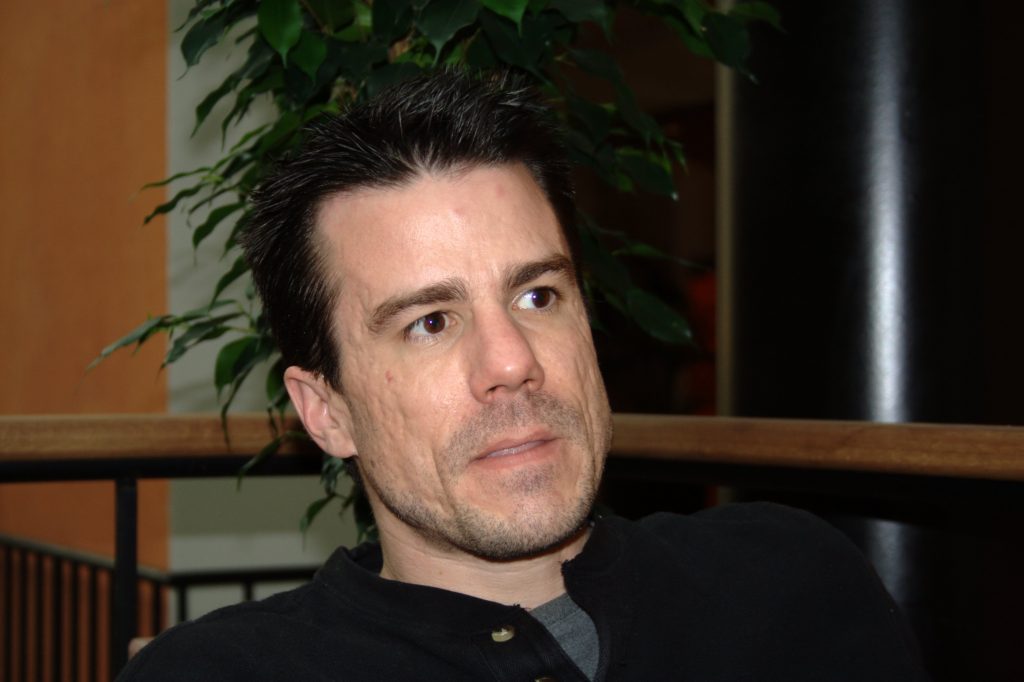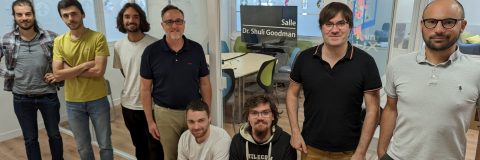
Copyright – Ilya Schurov , Computerra Weekly — CC
A year ago, Ian Murdock passed away and with him, a core part of the defenders of free software. We would like to pay tribute to the Debian founder, because at Savoir-faire Linux, we use his heritage everyday.
Free above all
As an undergraduate student at Purdue University, Ian Murdock discovered Linux in the early 90s. Fascinated by its ethics and vision, he dives in passionately. In 1993, at the age of only 20, Iam Murock begins his Debian project, where the name originates from the contraction of his wife Debra Lynn’s name and his own. Initially developed with the collaboration of a small group of Free Hackers, Debian quickly became one of the first Linux distributions, open and free to have found success and brought together a community of free developers and users. That same year, Ian Murdock published the Debian Manifesto, which grounds the humanist philosophy which is behind his project. This philosophy falls in line with the spirit of GNU and Linux.
1. Debian will remain an entirely free project.
2. All new developments will be brought back to the community.
3. Transparency is an acquired good.
4. The users and free software are the project’s priority.
5. Exceptions to the free software principles are made to respond to any need.
To this can be added many principles which are entwined in a social contract, a constitution and a series of instructions, demonstrating a vision based on diversity and non discrimination towards users or softwares as well as a free and non commercial distribution, a key principle of Debian.
A community project with infinite forks
 Today, the Debian project counts more than a thousand official developers without forgetting more than a hundred occasional contributors and no less than 43 500 software packages. Every Debian version where the release varies based on the degree of stability is named after a character of the animated film Toy Story of Pixar studios- my preference goes to Mr. Potato Head and yours?
Today, the Debian project counts more than a thousand official developers without forgetting more than a hundred occasional contributors and no less than 43 500 software packages. Every Debian version where the release varies based on the degree of stability is named after a character of the animated film Toy Story of Pixar studios- my preference goes to Mr. Potato Head and yours?
Like in any organization based on free principles developers can fork a project, a branch of a project which will have its own continuity, there are many Debian project forks. Without writing an exhaustive list, we can reference Ubuntu which we use at Savoir-faire Linux, Xubuntu or even SteamOS.
Another one of Debian’s distinctive characters is its organizational model. During his discovery of Linux and the free software model, Ian Murdock remained profoundly impacted by the communitarian aspect of the project. As his turn came, he wanted to give forward. The Debian project was taken on by a not for profit foundation, Software Public Interest (SPI), where a community of volunteer developers decide future orientations and developments. A project manager is elected every year by the members. Ian Murdock naturally relayed his role to other managers, however kept a close eye as his role of secretary of the foundation.
Ring on Debian
Thanks to the work of Alexandre Viau, Debian developer and developer at Savoir-faire Linux. Our Ring project is accepted since June 30th, 2016 on Debian testing, the repositories of Stretch development, Debian’s next version.
An incredible recognition for Savoir-faire Linux’s Ring team and good news for users who can now install Ring from their Debian distribution without having to add those of ring.cx
Alexandre Viau and his collegue Simon Désaulniers participated at the DebConf 2016, in the city of Cape Town, South Africa, to present Ring to the Debian community.
They also took advantage of this International Free event to present OpenDHT, our distributed hash table system at the heart of Ring. The libopendht package made an appearance on Debian experimental during the DebConf.
In regards to Gabriela Coleman, teacher and researcher at McGill University, other than the community created around the project, Ian Murdock’s heritage rests on the collaborative culture he fostered issued of GNU and Linux, which makes the Debian project an even larger success than the technical development of an information technology product of good work.




 Today, the Debian project counts more than a thousand official developers without forgetting more than a hundred occasional contributors and no less than 43 500 software packages. Every Debian version where the release varies based on the degree of stability is named after a character of the animated film Toy Story of Pixar studios- my preference goes to Mr. Potato Head and yours?
Today, the Debian project counts more than a thousand official developers without forgetting more than a hundred occasional contributors and no less than 43 500 software packages. Every Debian version where the release varies based on the degree of stability is named after a character of the animated film Toy Story of Pixar studios- my preference goes to Mr. Potato Head and yours?



